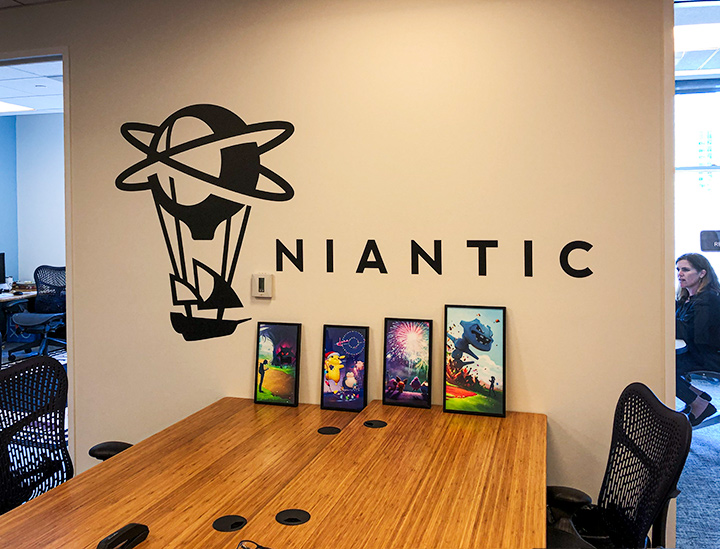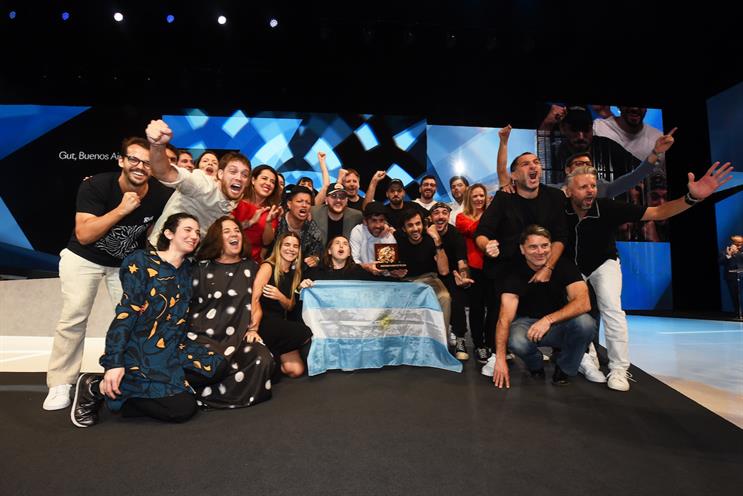June 30 2023 - Summer Fridays

👋Happy Friday everyone. We've got a quick note below about some upcoming summer hours!
What's Going On?
- For the summer we will be shifting from a daily to a weekly post
- Posts will be on Friday, rounding up the most important news from the week
What's Exciting
- We are bringing back the video roundup. The hope is to bring a bit more context, beyond the summaries (example of past video here)
- We are working on a refreshed look/layout
Grateful
- Writing this everyday is a continued labor of love, I am so grateful for every one of you who open and read this daily. Our mission is to inform and educate on the business of brands, so we can elevate creativity within our organizations.
So please continue to share with friends & coworkers. Have an amazing weekend, I'll see you all next Friday 👋
Overstock.com has purchased the intellectual property of bankrupt home-goods store Bed Bath & Beyond for $21.5 million. As a result, Overstock will rename its website, mobile app, and rewards program to Bed Bath & Beyond. The transition will begin in Canada in July, and in August, Overstock's US customers will be redirected to bedbathandbeyond.com after the final physical Bed Bath & Beyond stores close. Overstock's CEO, Jonathan Johnson, is also considering renaming the entire business to Bed Bath & Beyond or a new name. The move aims to update Overstock's image and capitalize on the popularity of the Bed Bath & Beyond brand equity. The acquisition provides Overstock with valuable customer data and is expected to increase its customer count, although the average spending per customer may decrease. Overstock plans to invest in marketing to promote the rebranding. The deal comes at a time when the furniture industry is facing challenges due to changing consumer spending habits. Overstock intends to hire former Bed Bath & Beyond employees and continue offering sales and coupons, although the frequency may be adjusted.

Niantic is closing its Los Angeles studio and laying off approximately 230 employees. This decision is part of a restructuring effort aimed at reducing expenses and refocusing the company's efforts. Niantic plans to concentrate on augmenting Pokémon GO and promoting its other titles, such as Peridot, which was recently launched. The company's founder and CEO, John Hanke, acknowledged that their expenses had outpaced revenue growth, and the projects they launched did not generate sufficient income. Niantic will discontinue NBA All-World and cancel development on Marvel: World of Heroes. Hanke emphasized the importance of maintaining and expanding Pokémon GO while also improving user retention and profitability for Pikmin Bloom, Peridot, and Monster Hunter Now. Additionally, Niantic aims to enhance its augmented reality (AR) platform and maps, anticipating the need for cross-platform solutions in the future.

- Uncommon Creative Studio, an advertising agency, has received criticism for sharing a mock-up of a British Airways advertisement at the Glastonbury festival. The image, which appeared on social media and billboards, was part of the agency's "A British original" campaign for the airline. However, it was pointed out that the mock-up did not actually run at Glastonbury, and the template used was taken from a photo of a different ad from a previous festival. The agency has since deleted the social media posts. The campaign recently won the Outdoor Grand Prix at the Cannes Lions International Festival of Creativity 2023. Uncommon Creative Studio and British Airways have declined to respond.

- Unilever is approaching generative AI cautiously. The company has established an internal consortium called the "Generative AI Marketing Collective" to determine the appropriate use of generative AI in marketing. The team consists of senior employees from various departments, including brand, innovation insights, tech, media, consumer engagement, legal, and procurement. Unilever recognizes the potential of generative AI for producing dynamic and personalized creative at scale, but it is aware of issues such as intellectual property, privacy, and human bias. The company has implemented guidelines and safeguards to ensure responsible use of generative AI tools by its employees.
- Spotify has been focusing on video podcasts to keep up with the rise of short-form video content on platforms like TikTok. The streaming service now hosts over 100,000 podcast shows that publish video episodes, a 40% increase from March. Spotify has been signing deals with creators to highlight their video content on the app, including exclusive video episodes. The push into video podcasts is influenced by the popularity of short-form video on platforms like TikTok.
- Meta has released the 22 card systems that provide insights into how its AI systems determine the posts that appear on users' feeds. These cards explain various aspects of Meta's platform, such as how the AI ranks content based on relevance and value. Users can customize their experience by unfollowing individuals or groups, indicating preferences for specific types of content, and using centralized menus with customization controls. Meta is also testing new features, including the ability to indicate interest in recommended reels on Instagram. The release of these card systems comes ahead of the implementation of the Digital Markets Act in the European Union, which requires transparency in recommendation algorithms and the provision of chronological feeds.
- GUT, an independent agency based in Argentina, has been awarded Agency of the Year at the Cannes Lions festival. The agency, which set out its goal to win the award by 2023, received three Grands Prix and a total of 35 Lions across various categories. GUT plans to expand globally and open offices in London and Asia in the future. The success of GUT has garnered attention within the advertising industry, with praise for its ambition and creative work. Quoting: “We love advertising. We have passion – we’re not cynical”

- Google's global video solutions director, Marvin Renaud, disputes a recent report that claims Google's video ad placements on third-party networks do not meet its policy guidelines. Renaud argues that the report used unreliable sampling and proxy methodologies, making inaccurate claims about Google's Video Partner network. He emphasizes Google's strict policies and commitment to enforcing them, citing the suspension of ads on over 143,000 sites in 2022 for policy violations.
- Linda Yaccarino has faced initial challenges in her role as she was restricted by a noncompete clause from working on advertising deals. However, she has focused on repairing relationships, such as with Google, and boosting employee morale. Yaccarino has emphasized Twitter's mission to become a reliable information source and global communication platform. Despite being unable to engage in advertising negotiations, she has been conducting fact-finding tours and leveraging her industry relationships to understand Twitter's standing.
- Stripe has laid off dozens of employees, primarily in its recruiting department, as part of a broader wave of belt-tightening. While the cuts only affect a small percentage of the company's workforce of around 7,000 employees, they reflect a restructuring effort to realign hiring locations. This comes roughly seven months after Stripe made significant layoffs, letting go of over 1,000 workers. The company currently has more than 400 open positions listed on its website, with a significant portion of them based in the US. Stripe has faced challenges, including slower revenue growth and increased cash burn, leading to a decline in its valuation. However, the company raised over $7 billion earlier this year, allowing employees to sell shares and cover taxes, and remains optimistic about its long-term prospects.
- Generative AI startup Typeface has raised $100 million in a Series B funding round led by Salesforce Ventures, valuing the company at $1 billion. Typeface, founded by former Adobe CTO Abhay Parasnis, offers a platform that uses generative AI to deliver personalized content for brands at scale. The platform consists of a content hub, an AI-powered personalization component called Blend, and a system called Flow for integrating into existing apps and systems. Typeface focuses on brand governance, content safety, and privacy, aiming to provide secure, self-serve solutions for enterprises to produce on-brand content.

- T-Mobile has initiated a review for a portion of its creative account, which is currently held by Publicis Groupe and Saatchi & Saatchi. The wireless provider has issued a request for information to agencies specializing in strategic brand positioning, sponsorship, radio, digital, and Hispanic marketing for the US market. The review does not include national brand TV advertising, which is handled by Panay Films. T-Mobile regularly assesses and reviews its partners to ensure relevant brand content and disruptive storytelling. The consulting firm ID Comms is believed to be managing the review process
- According to Digiday's research, marketer confidence in Instagram has increased from 38% in Q3 2022 to 46% in Q1 2023, making it one of the top social media platforms for budget spend. TikTok, which ranked third, has gained attention for its ability to create viral moments for brands, but brand respondents expressed less optimism about its potential as a successful marketing platform compared to Instagram. The report also highlights that almost half (49%) of publishers are already using generative AI technology, with over half of those not using it planning to incorporate it within the next year. The most common use of generative AI among publisher professionals is for writing copy (63%), followed by research (49%) and marketing (46%).
- A new ads measurement system called Origin has launched in the UK with the support of major consumer brands and technology companies, including Google and Meta. The platform aims to provide better understanding of how advertising works across various media channels, addressing the lack of common measurement standards and fragmentation in reaching audiences. Origin has raised £20 million in funding for its trial launch, with brand owners, tech groups, media agencies, and ISBA members among the contributors. The system gathers data on traditional TV viewing and digital video and display data, providing transparency to advertisers for more informed allocation of marketing spending.
- National Geographic magazine has laid off all of its remaining staff writers, marking another difficult passage for the publication. The cutback, under the ownership of Walt Disney Co., involves 19 editorial staffers, who were informed of the terminations in April. Article assignments will now be given to freelancers or handled by editors. This is the second round of layoffs in the past nine months and the fourth since ownership changes began in 2015. National Geographic has struggled to adapt to the digital era and the decline of print media. The magazine will also stop selling print copies on newsstands in the US from next year.

- After the merger with Google Maps, Waze officially gets hit with layoffs. The job cuts are a result of Waze's ad platform being shut down in favor of Google ads. The specific number of affected employees is unclear. Waze, known for its crowdsourced approach to traffic updates, will adopt Google's ad platform to streamline operations and eliminate redundancy compared to Google Maps. Google reassures users that it remains committed to Waze's brand and community. However, the merger raises questions about the future independence of Waze within Google.
- The third season of the Apple TV+ show "Ted Lasso" has generated $23.2 million in sponsorship value for Nike in the U.S. and U.K. within a month of its release, according to research by YouGov. The season received 172 million views, resulting in a total net sponsorship value of $59.7 million for all brands featured on the show. Nike's value was $17.5 million for clothing and $3.4 million for the AFC Richmond kit. YouGov's analysis uses image recognition software to track brand exposure, combining it with market ad rates and audience data.
- Paramount is considering the possibility of selling BET and VH1. The decline in viewership and profitability in the cable network industry, driven by cord-cutting and streaming services, has led to a decrease in valuations. While there is no official confirmation of potential buyers or financial terms, several names have emerged, including rapper and entrepreneur 50 Cent, basketball legend Shaquille O'Neal, media mogul Sean "Diddy" Combs, and media investor Byron Allen. Among them, Tyler Perry, known for his connection with BET, is considered a frontrunner for ownership. Byron Allen, through his company Entertainment Studios, has also expressed interest, highlighting the potential synergies with his existing media assets. There is speculation about a possible joint bid from Tyler Perry and Byron Allen. The structure of the deal would likely involve Paramount Global selling a majority stake in the networks, and the valuation is estimated to be around $400 million, although industry experts suggest the true value could exceed $3 billion.

- McDonald’s pretending not to see Grimace Shake trend
- R/GA Appoints Seamus Higgins as Chief Creative Officer for Australia
- All the ways Shein’s influencer tour went wrong
- AI is transforming architecture. 4 top studios explain how
- The Digiday Guide to Esports Winter
- Plex lays off more than 20 percent of its staff
- The Risks of Cutting Off China
- Flipboard Launches Publisher Interest Collectives, Expanding Advertiser Reach
- People Hire Phone Bots to Torture Telemarketers
- Virgin Galactic Completes First Commercial Spaceflight
- RunwayML raises $141M
Dave Meyers doing his thing
As always, send us feedback at: thebrandtrackers@gmail.com
Member discussion